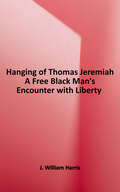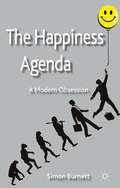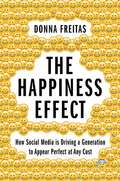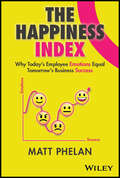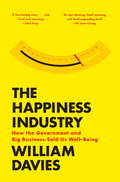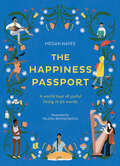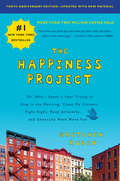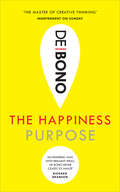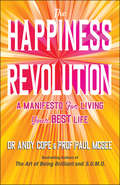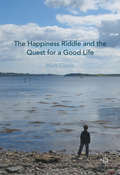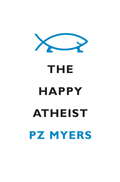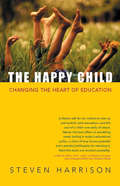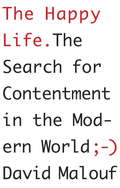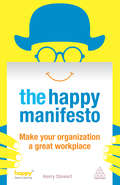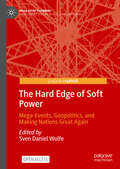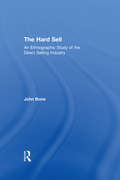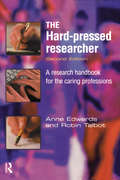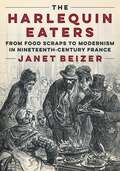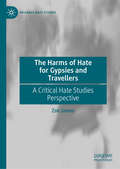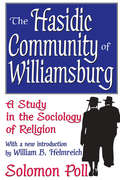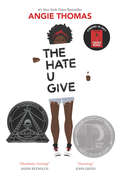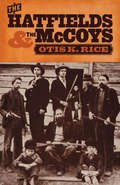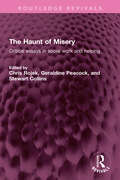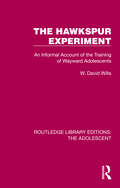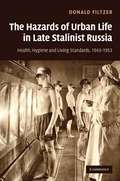- Table View
- List View
The Hanging of Thomas Jeremiah: A Free Black Man's Encounter With Liberty
by J. William HarrisThe tragic untold story of how a nation struggling for its freedom denied it to one of its own. In 1775, Thomas Jeremiah was one of fewer than five hundred “Free Negros” in South Carolina and, with an estimated worth of £1,000 (about $200,000 in today’s dollars), possibly the richest person of African descent in British North America. A slaveowner himself, Jeremiah was falsely accused by whites—who resented his success as a Charleston harbor pilot—of sowing insurrection among slaves at the behest of the British. Chief among the accusers was Henry Laurens, Charleston’s leading patriot, a slaveowner and former slave trader, who would later become the president of the Continental Congress. On the other side was Lord William Campbell, royal governor of the colony, who passionately believed that the accusation was unjust and tried to save Jeremiah’s life but failed. Though a free man, Jeremiah was tried in a slave court and sentenced to death. In August 1775, he was hanged and his body burned. J. William Harris tells Jeremiah’s story in full for the first time, illuminating the contradiction between a nation that would be born in a struggle for freedom and yet deny it—often violently—to others.
The Happiness Agenda
by Simon BurnettExplores why contemporary Anglo-American society is obsessed with happiness. Striving to be happy is now a morally imperative pursuit. Through the lens of novel social theory, this book explicates how this has transpired as consequence of a complex 'conspiracy of coordination' between political, organisational and psychological developments.
The Happiness Effect: How Social Media is Driving a Generation to Appear Perfect at Any Cost
by Donna Freitas Christian SmithSexting. Cyberbullying. Narcissism. Social media has become the dominant force in young people's lives, and each day seems to bring another shocking tale of private pictures getting into the wrong hands, or a lament that young people feel compelled to share their each and every thought with the entire world. Have smartphones and social media created a generation of self-obsessed egomaniacs? <p>Absolutely not, Donna Freitas argues in this provocative book. And, she says, these alarmist fears are drawing attention away from the real issues that young adults are facing.
The Happiness Index: Why Today's Employee Emotions Equal Tomorrow's Business Success
by Matt PhelanLearn to reconnect your brain and heart to find happiness and engagement at work and in life In The Happiness Index: Why Today's Emotions Equal Tomorrow's Business Success, cofounder and CEO of The Happiness Index Matthew Phelan delivers a fascinating dive into data from over 100 countries and 2 million human beings that helps us understand what really drives our engagement and happiness at work. Grounded in an evidence-based and neuroscientific approach, the book skips the memes and inspirational quotes in favor of data and insights based on real-time information from real people. In the book, you’ll learn that “engagement” is what our brains need, and “happiness” is what our hearts need. You’ll discover what we need to thrive and succeed in work and life, as well as: A step-by-step approach to learning from real-world data about happiness Practical lessons applicable to any organization that will help both individuals and groups succeed Case studies from recognizable firms around the world and interviews with executives to help bring the data to life A simultaneously inspirational and hands-on treatment of a subject of singular importance to everyone in the working world, The Happiness Index will benefit executives, managers, and other business leaders, as well as founders, business owners, and anyone else interested in helping the people around them flourish.
The Happiness Industry
by William DaviesIn winter 2014, a Tibetan monk lectured the world leaders gathered at Davos on the importance of Happiness. The recent DSM-5, the manual of all diagnosable mental illnesses, for the first time included shyness and grief as treatable diseases. Happiness has become the biggest idea of our age, a new religion dedicated to well-being. In this brilliant dissection of our times, political economist William Davies shows how this philosophy, first pronounced by Jeremy Bentham in the 1780s, has dominated the political debates that have delivered neoliberalism. From a history of business strategies of how to get the best out of employees, to the increased level of surveillance measuring every aspect of our lives; from why experts prefer to measure the chemical in the brain than ask you how you are feeling, to why Freakonomics tells us less about the way people behave than expected, The Happiness Industry is an essential guide to the marketization of modern life. Davies shows that the science of happiness is less a science than an extension of hyper-capitalism.
The Happiness Passport: A World Tour of Joyful Living in 50 Words
by Megan HayesFifty words from cultures around the world that capture the secrets of living well, from craic to yang sheng and hygge to ubuntu: “A pure joy to read.” —FlowMagazineThe Happiness Passport is a collection of wonderfully evocative words from around the globe whose definitions resonate with us all. Though the words themselves often seem untranslatable, the meaning behind each expression will stir up familiar emotions—bringing joy, contentment, and a greater understanding of other cultures. There are a wealth of examples to discover for a more wholesome outlook on life, including: • Hiraeth—the word for deep longing for home (Welsh)• Goya—the transportive ability of good storytelling (Urdu)• Yugen—the ability of the natural world to deeply move us (Japanese)• Gigil—the overwhelming urge to cuddle an adorable pet (Philippine Tagalog)This treasure trove of delights examines the cultural context of each expression and the lessons that we can apply in our own lives to achieve greater contentment, with beautiful original illustrations that evoke each elusive expression.“[Hayes] joins the dots between these differing beliefs to help us cultivate a richer shared vocabulary of happiness, and unravels the global interpretations of living well and contentedly.” —Psychologies Magazine
The Happiness Project, Tenth Anniversary Edition: Or, Why I Spent a Year Trying to Sing in the Morning, Clean My Closets, Fight Right, Read Aristotle, and Generally Have More Fun
by Gretchen Rubin#1 New York Times Bestseller“An enlightening, laugh-aloud read. . . . Filled with open, honest glimpses into [Rubin’s] real life, woven together with constant doses of humor.”—Christian Science MonitorGretchen Rubin’s year-long experiment to discover how to create true happiness. Drawing on cutting-edge science, classical philosophy, and real-world examples, Rubin delivers an engaging, eminently relatable chronicle of transformation. This special 10th Anniversary edition features a Conversation with Gretchen Rubin, Happiness Project Stories, a guide to creating your own happiness project, a list of dozens of free resources, and more.Gretchen Rubin had an epiphany one rainy afternoon in the unlikeliest of places: a city bus. “The days are long, but the years are short,” she realized. “Time is passing, and I’m not focusing enough on the things that really matter.” In that moment, she decided to dedicate a year to her happiness project.In this lively and compelling account—now updated with new material by the author—Rubin chronicles her adventures during the twelve months she spent test-driving the wisdom of the ages, current scientific research, and lessons from popular culture about how to be happier. Among other things, she found that novelty and challenge are powerful sources of happiness; that money can help buy happiness, when spent wisely; that outer order contributes to inner calm; and that the very smallest of changes can make the biggest difference.This updated edition includes:An extensive new interview with the authorStories of other people’s life-changing happiness projectsA resource guide to the dozens of free resources created for readersThe Happiness Project ManifestoAn excerpt from Rubin’s bestselling book The Four Tendencies: The Indispensable Personality Profiles that Reveal How to Make Your Life Better (and Other People’s Lives Better, Too)
The Happiness Revolution: A Manifesto for Living Your Best Life
by Andy Cope Paul McGeeA new book by two of the biggest powerhouses in positive psychology and personal development – Dr Andy Cope and Professor Paul McGee Happiness. We chase it, we crave it…it’s so in demand… yet so scarce and fleeting. But here’s the good news. In The Happiness Revolution: A Manifesto For Living Your Best Life, bestselling authors Dr Andy Cope and Professor Paul McGee deliver a page-turning self-help book of the times, for the times. As the world wakes up to a new kind of normal, The Happiness Revolution challenges readers to sign up to an uprising of wellbeing and to making the most of the privilege of being on this planet. The book outlines a 10-point Happiness Manifesto. Grounded in the science of human flourishing and the reality of life, the principles are simple, do-able and above all make a difference not only to yourself but to others too. Let the fight back to mental wealth start right here. Welcome to global domination of the happiness kind! Discover: How to regain your sanity, clarity, and wellbeing, even when your smartphone, kids, spouse, job, and possessions seem to be conspiring to keep you from doing just that. Why it can be so hard to maintain a happy outlook when the outside world has never been so fast, complex, and unpredictable. How to be at your best in a world that is doing its worst. Happiness is the #1 thing you want for yourself and your family. The Happiness Revolution is an indispensable guide for everyone trying to live their best life and to spread some happiness whilst doing so. Rise Up and Be Happy! Vive la revolution!
The Happiness Riddle and the Quest for a Good Life
by Mark CieslikThis book examines the meaning of happiness in Britain today, and observes that although we face challenges such as austerity, climate change and disenchantment with politics, we continue to be interested in happiness and living well. The author illustrates how happiness is a far more contested, social process than is often portrayed by economists and psychologists, and takes issue with sociologists who often regard wellbeing and the happiness industry with suspicion, whilst neglecting one of the key features of being human – the quest for a good life. Exploring themes that question what it means to be happy and live a good life in Britain today, such as the challenges young people face making their way through education and into their first jobs; work life-balance; mid-life crises; and old age, the book presents nineteen life stories that call for a far more critical and ambitious approach to happiness research that marries the radicalism of sociology, with recent advances in psychology and economics. This book will appeal to students and academics interested in wellbeing, happiness and quality of life and also those researching areas such as the life course, work-life balance, biographies, aging and youth studies.
The Happy Atheist
by Pz Myers"I'm an atheist swimming in a sea of superstition, surrounded by well-meaning, good people with whom I share a culture and similar concerns, and there's only one thing I can do. I have to laugh." --PZ Myers Through his popular science blog, Pharyngula, PZ Myers has entertained millions of readers with his infectious love of evolutionary science and his equally infectious disdain for creationism, biblical literalism, intelligent design theory, and other products of godly illogic. In this funny and fearless book, Myers takes on the religious fanaticism of our times with the gleeful disrespect it deserves, skewering the apocalyptic fantasies, magical thinking, hypocrisies, and pseudoscientific theories advanced by religious fundamentalists of all stripes. With a healthy appreciation of the absurd, Myers not only pokes fun at the ridiculous tenets of popular religions but also highlights how the persistence of Stone Age superstitions can have dark consequences: interfering with our politics, slowing our scientific progress, and limiting freedom in our culture. Forceful and articulate, scathing and funny, The Happy Atheist is a reaffirmation of the revelatory power of humor and the truth-revealing powers of science and reason.
The Happy Child: Changing the Heart of Education
by Steven HarrisonThe author of The Shimmering World proposes allowing children to follow their own educational path, thus enabling their curiosity to fuel their learning. In this thought-provoking new book, bestselling author Steven Harrison ventures far outside the box of traditional thinking about education. His radical proposal? Children naturally want to learn, he asserts, so let them direct their own education in democratic learning communities where they can interact seamlessly with their neighborhoods, their towns, and the world at large. Most learning systems apply external motivation through grades, rankings, teacher direction, and approval. The Happy Child suggests that a self-motivated child who is interdependent within a community can develop the full human potential to live a creative and fulfilling life. Harrison focuses on the integration of the whole child, the learning environment, and the non-coercive spirit of curiosity-driven education. Part social-critic, part humanistic visionary, Harrison not only focuses on a reorientation of education, but the possibility of rethinking our families, communities and workplaces, and ultimately what gives our children, and all of us, real happiness. Harrison adds his voice to those of A. S. Neil, John Holt, and John Gatto, all who believe that contemporary schools can never be reformed sufficiently, but must be abandoned entirely for something new and vital to emerge. Praise for The Happy Child &“A clarion call for our culture to wise up and re-think what education—and the soul of a child—are really all about. Steven Harrison offers us something sorely lacking in today&’s educational policy: a vision of true human potential and a practical philosophy for attaining it. Read this book and envision possibility.&” —Jane M. Healy, Ph, author of Failure to Connect: How Computers Affect Our Children&’s Minds &“Harrison's hard-biting social critique of the plight children and education are in should wake us up to our atrocious treatment of our young, that we might actually address their critical needs rather than simply ignoring them as usual.&” —Joseph Chilton Pearce, author of The Crack in the Cosmic Egg &“Such a nobly simple idea, that the true purpose of education should be happiness, and so clearly reasoned.&” —Chris Mercogliano, author of Making It Up As We Go Along
The Happy Life
by David MaloufBy Australia's greatest contemporary author, an elegant, succinct meditation on what makes for a happy life. ;-)"Happiness surely is among the simplest of human emotions and the most spontaneous," says David Malouf. But what exactly are we looking for when we chase happiness? At this particular moment in history, privileged, industrialized nations have lessened much of what makes us unhappy: widespread poverty, illness, famine. Yet we are still unfulfilled, turning increasingly to yoga, church, Match.com, drugs, clinical therapy and retail therapy. What is at the root of our collective stress, and how can we find our way to contentment? Drawing on mythology, philosophy, art and literature, Malouf traces our conception of happiness throughout history, distilling centuries of thought into a lucid narrative. He discusses the creation myths of ancient Greece and the philosophical schools of Athens, analyzes Thomas Jefferson's revolutionary declaration that "the pursuit of happiness" is a right, explores the celebration of sensual delight in Rembrandt and Rubens and offers a perceptive take on a modern society growing larger and more impersonal. With wisdom and insight, Malouf investigates that simplest, most spontaneous of feelings and urges us to do the same.
The Happy Manifesto
by Henry StewartImagine a workplace where people are energized and motivated by being in control of the work they do. Imagine they are trusted and given freedom, within clear guidelines, to decide how to achieve their results. Imagine they are able to get the life balance they want. Imagine they are valued according to the work they do, rather than the number of hours they spend at their desk.Wouldn't you want to work there? Wouldn't it also be the place that would enable you to work at your best and most productive? The Happy Manifesto is a guide to anyone wanting to improve their workplace. Learn how you too could change your work environment for the better.
The Hard Edge of Soft Power: Mega-Events, Geopolitics, and Making Nations Great Again (Mega Event Planning)
by Sven Daniel WolfeThis open access book explores the linkages between geopolitics and hosting mega-events. It encompasses and transcends the international and domestic dimensions of soft power to unpack how mega-events shape cities and societies through notions of unity and greatness, but also investigates local developments beneath the Potemkin surface of the global spectacle. Drawing on a global range of case studies from Eastern Europe, Western Europe, North America, South America, Africa, the Middle East, Asia, and Australia, this volume features the sensitivity of grounded local research framed within geopolitical perspectives. Together, they present an international and transdisciplinary understanding of the local and global political implications of hosting mega-events. The volume reveals what hides under the mega-event spectacle: problems that – regardless of national context – most often occur to the detriment of host populations. This is an open access book.
The Hard Sell: An Ethnographic Study of the Direct Selling Industry
by John BoneIn this work John Bone provides a lively and engaging insight into the social world of direct selling organizations. He investigates these under-researched organizations via a detailed ethnography of two home improvement companies selling products such as fitted kitchens, double glazing and conservatories, as well as developing wider sociological debates on trust and interaction. These organizations tend to be loosely ordered and internally competitive collectives whose sole aim is to maximize short term profits through sales strategies that routinely employ the calculative exploitation of consumer norms and expectations. John Bone uses his findings to argue that amid the wave of increasing deregulation and liberalization that has supplanted the planned and regulated form of capitalism that predominated until the 1970s, such conditions are now becoming prevalent in mainstream contemporary organizations, threatening to unleash a latent disorder that underlies the rationality of 'modern' business.
The Hard-pressed Researcher: A research handbook for the caring professions
by Anne Edwards Robin TalbotWorking in the fields of education, health and social care demands a great deal of energy, effort and commitment on the part of the practitioner or trainee. When a research project is added to a workload the pressures can be great, particulary if the would-be-researcher is not confident about the process involved.The Hard-pressed Researcher provides practical guidance on how to undertake a research project. It has been written specially for practitioners and students in the fields of education, health and social care and assumes no specific knowledge of the research process.This revised and updated version of the first edition covers the major modes of research (experimental research, survey work, case study, interpretative research and action research) and provides step-by-step guidance from conceptualization through to report writing. Each chapter provides sources for further reading and the book ends with a series of statistical tables.All those studying or working in the caring professions will welcome the very straightforward and sympathetic approach of the authors, both of whom have considerable experience in the supervision of research work.
The Harlequin Eaters: From Food Scraps to Modernism in Nineteenth-Century France
by Janet BeizerHow representations of the preparation, sale, and consumption of leftovers in nineteenth-century urban France link socioeconomic and aesthetic history The concept of the &“harlequin&” refers to the practice of reassembling dinner scraps cleared from the plates of the wealthy to sell, replated, to the poor in nineteenth-century Paris. In The Harlequin Eaters, Janet Beizer investigates how the alimentary harlequin evolved in the nineteenth and early twentieth centuries from the earlier, similarly patchworked Commedia dell&’arte Harlequin character and can be used to rethink the entangled place of class, race, and food in the longer history of modernism. By superimposing figurations of the edible harlequin taken from a broad array of popular and canonical novels, newspaper articles, postcard photographs, and lithographs, Beizer shows that what is at stake in nineteenth-century discourses surrounding this mixed meal are representations not only of food but also of the marginalized people—the &“harlequin eaters&”—who consume it at this time when a global society is emerging. She reveals the imbrication of kitchen narratives and intellectual–aesthetic practices of thought and art, presenting a way to integrate socioeconomic history with the history of literature and the visual arts. The Harlequin Eaters also offers fascinating background to today&’s problems of food inequity as it unpacks stories of the for-profit recycling of excess food across class and race divisions.
The Harms of Hate for Gypsies and Travellers: A Critical Hate Studies Perspective (Palgrave Hate Studies)
by Zoë JamesGypsies and Travellers have often been overlooked as victims of hate crime and discrimination. This book redresses that exclusion by shining a light on the harms of hate experienced by Gypsies and Travellers in the UK. In doing so James explores how hate permeates all aspects of their lives and identifies the hate crimes, incidents, and speech that they are subject to. It goes on to explore how hate against Gypsies and Travellers occurs as discrimination, social exclusion and criminalisation and how that hate is embedded within the language and practice of neoliberal capitalism. This book provides new insights to critical criminology and ways of understanding hate by using the critical hate studies perspective to gain a full appreciation of the harms of hate. As a consequence of this, the book is able to do justice to Gypsies' and Travellers' experiences of hate by extrapolating how harms manifest and the impact they have on Gypsies’ and Travellers’ social and personal identities. The book explains and acknowledges how hate harms imbue Gypsies' and Travellers' daily lives, including common events of serious abuse and assault, regular ill-treatment in provision of services, and everyday micro-aggressions. It argues hate experienced by Gypsies and Travellers can only be fully recognised through an analysis of the neoliberal capitalist context within which it occurs and the harmful subjective experience it engenders. The author’s expertise in this area, having carried out research with Gypsies and Travellers for 25 years, underpins the book with excellent empirical knowledge and research-informed discussion.
The Hasidic Community of Williamsburg: A Study in the Sociology of Religion
by Solomon PollThe Hasidim of the Williamsburg section of Brooklyn separate themselves not only from non-Jews and unreligious Jews but also from religious Orthodox Jews whose religious ideology, intensity, and frequency of traditional religious behavior do not meet Hasidic standards. These Hasidim create a sociological wall between themselves and other Jews whom they do not consider traditionally religious. This being the case, how is it the Hasidim are able to survive, indeed thrive, well into the twenty-first century while maintaining their social isolation and avoiding assimilation into the American culture, especially living amongst the cultural and ethnic diversity and temptations of New York City? The Hasidic Community of Williamsburg explores and explains this sociological phenomenon.Poll explains some main tenets on the which the Hasidim of Williamsburg have come to rely: making secular activities sacred; incorporating modern devices into their lives to promote and advance their own religious observance; separating themselves, using daily activities including the clothes they wear, the food they eat, the places they gather, and even the language they speak among themselves; and by incorporating American values into their lives while simultaneously casting aspersions on and demonizing all those who do not follow their exact way of life.Until now the Hasidim have successfully achieved social isolation while also continuing to thrive as a group. They have created a well-functioning community with social controls and little or no deviation. However, as the outside society continues to advance and the Hasidim, themselves, further incorporate the very American ideals of hard work, economic success, progress, prosperity, and profit into their own community value system, will their social controls remain effective or become weakened?
The Hate U Give: The Hate U Give And On The Come Up
by Angie Thomas<P>Sixteen-year-old Starr Carter moves between two worlds: the poor neighborhood where she lives and the fancy suburban prep school she attends. The uneasy balance between these worlds is shattered when Starr witnesses the fatal shooting of her childhood best friend Khalil at the hands of a police officer. Khalil was unarmed.<P> <P>Soon afterward, his death is a national headline. Some are calling him a thug, maybe even a drug dealer and a gangbanger. Protesters are taking to the streets in Khalil’s name. Some cops and the local drug lord try to intimidate Starr and her family. What everyone wants to know is: what really went down that night? And the only person alive who can answer that is Starr. <P>But what Starr does—or does not—say could upend her community. It could also endanger her life. <br> <p><b>Winner of the 2018 William C. Morris award</b> <P><b>A New York Times Bestseller</b></p>
The Hatfields & the McCoys
by Otis K. Rice&“A captivating account of two families whose stubbornness and loyalty were exceeded only by their capacity for a terrible revenge.&” —Southern Living The Hatfield-McCoy feud has long been a famous part of Appalachian history, but over the years it&’s become encrusted with myth and error. Novelists, motion picture producers, television writers, and others have neglected to separate fact from fiction, and sensationalized events that needed no embellishment. Using court records, public documents, official correspondence, and other sources, Otis K. Rice presents an account that frees, as much as possible, truth from legend. He weighs the evidence carefully, avoiding the partisanship and the attitude of condescension and condemnation that have characterized many of the writings concerning the feud. He also sets the feud in the social, political, economic, and cultural context of eastern Kentucky and southwestern West Virginia in the late nineteenth and early twentieth centuries. By examining the legacy of the Civil War, the weakness of institutions such as the church and education system, the exaggerated importance of family, the impotence of the law, and the isolation of the mountain folk, Rice gives new meaning to the origins and progress of the feud. These conditions help explain why the Hatfield and McCoy families, which have produced so many fine citizens, could engage in such a bitter and prolonged vendetta.
The Haunt of Misery: Critical essays in social work and helping (Routledge Revivals)
by Chris Rojek Stewart Collins Geraldine PeacockFirst published in 1989, The Haunt of Misery offers social workers and students critical essays for critical times. Faced with unreflective wealth creation and the fragmentation of the counterculture, social work is perceived as failing to meet the needs of the client. Many social workers are left feeling angry, stranded and confused. Written by academics and professionals, the essays range over social work and unemployment, the crisis of AIDS and HIV infection, drug use, client collectives, the elderly, the ethnic minorities, professionalism, and self-management. The authors offer constructive criticism of existing social work practice and suggest radical and exciting issues for the profession in the 1990s and beyond.
The Hawkspur Experiment: An Informal Account of the Training of Wayward Adolescents (Routledge Library Editions: The Adolescent)
by W. David WillsOriginally published in 1941 and written in an attempt to dispute the popular assumption at the time that a ‘bit of discipline’ is what is needed for the correction of young men who show delinquent tendencies, this book is much more than that. Basically an account of a kind of voluntary Borstal Institution of which the author was head from 1936 to 1940, its interest on reissue in 1967 lay in the fact that it contained the germinal ideas of most of the day’s newest methods in penal treatment, not just as ideas, but in practice. Here is the therapeutic community in embryo, here are the beginnings of group therapy, of inmate participation in treatment, of therapy through relationships. None of them are mentioned by name – the names had not been invented; but anyone who wanted to understand the trends in the treatment of delinquent and maladjusted people at the time would find it all here in simple untechnical English. The book is also an account of an enthralling experience, exciting and interesting in itself, apart from any social significance. Just before the camp started, Alec Paterson said to David Wills, ‘Do you really think you can run a place of this kind without the use of punishment?’ Wills said he didn’t know, but looked forward to trying. Readers of this book may judge for themselves how far he succeeded. A particularly interesting feature of this edition is the account of the subsequent lives of the many boys who were at Hawkspur.
The Hazards of Urban Life in Late Stalinist Russia
by Donald FiltzerThis is the first detailed study of the standard of living of ordinary Russians following World War II. It examines urban living conditions under the Stalinist regime with a focus on the key issues of sanitation, access to safe water supplies, personal hygiene and anti-epidemic controls, diet and nutrition, and infant mortality. Comparing five key industrial regions, it shows that living conditions lagged some fifty years behind Western European norms. The book reveals that, despite this, the years preceding Stalin's death saw dramatic improvements in mortality rates thanks to the application of rigorous public health controls and Western medical innovations. While tracing these changes, the book also analyzes the impact that the absence of an adequate urban infrastructure had on people's daily lives and on the relationship between the Stalinist regime and the Russian people, and, finally, how the Soviet experience compared to that of earlier industrializing societies.
